Few things are as frustrating as having your health concerns dismissed by a doctor. Sadly, this is an all-too-common experience, especially for women. Many find themselves jumping through endless hoops, searching for answers, and battling exhaustion along the way.
Disability and human rights advocate Jessica Wetz decided she’d had enough. To make her appointments more productive, she came up with a smart solution: compiling all her medical records—lab results, diagnoses, and treatment history—into a single binder. By bringing it to every visit, she feels prepared to address any doubts or questions about her health.
Jessica took to TikTok to share her approach, and her videos quickly went viral. Read on to discover how her system works and why it’s made such a difference in her journey.
After dealing with dismissive doctors one too many times, disability and human rights activist Jessica Wetz came up with a solution
Image credits: Image by Freepik (not the actual photo)
She put together a medical binder for her appointments, and it has made her life so much easier
Image credits: jessicawetz6
“Medical binders make things faster for doctors, that’s why we use them and why they thank me for them. Let me explain how it works.
I had a doctor say to me, ‘There’s no way you had straightening of lumbar curvature at 14.’
You don’t have to believe me, I have the report right here. Let’s read it together.”
Image credits: jessicawetz6
“I had a doctor say to me, ‘Okay, Jessica, I’m gonna order you some labs and then in six weeks, we’ll go over them.’
I go, ‘What blood work do you want?’
He goes, ‘Vitamin D, vitamin B, iron.’
‘Perfect, I had it 2 days ago. I have it right in front of me. We don’t need to wait 6 weeks.’
He’s like, ‘Oh, that was easy.'”
Image credits: jessicawetz6
“I had a doctor say to me, ‘Okay, Jessica, I went over your results, everything is normal, have a good day, bye.’
‘Hold up, doc, my CT showed liver disease.’
He goes, ‘No, Jessica, you never had a CT, you had an MRI.’
I go, ‘No, doc, pull it up, you have the report, I’ve had both.’
‘No, Jessica, let me explain to you the difference.’
‘Nope, I have it right in front of me, you can read it yourself. See? July 2023, CT of the abdomen. Dilated bile ducts, primary sclerosing cholangitis. Follow-up MRCP recommended.’
‘Oh, OK, yeah, I’ll order that.'”
Image credits: jessicawetz6
“And you saying a summary page is funny, because I do have a summary page that lists all my diagnoses and [stuff].
And one time, a doctor, I said I have Ehlers Danlos, he goes, ‘You have Ehlers Danlos? Like, a doctor diagnosed you with that?’
I go, ‘Yup.’
He goes, ‘What’s the doctor’s name?’
‘You don’t have to believe me, dude, I literally have the report right here. There you go.'”
Image credits: jessicawetz6
“So a summary report doesn’t do s**t, the purpose of the binder is to prove to them what other doctors have said because they’re not gonna take my word for it.
I had a doctor say to me, ‘Okay, Jess, we’re gonna order you an ultrasound.’
‘I already had an ultrasound a week ago.’
‘Yeah, we know, but we’ve called that hospital multiple times and they won’t send the report over.’
‘Guess what, I have it right here. No need to wait a month and waste somebody else missing out on an ultrasound, I already did the work for you.'”
Image credits: jessicawetz6
“So now you know, when you see a patient with a binder, they’re not there to read it to you front to back.
If I’m trying to talk to you about my knee pain, I’m not reading you my colonoscopy report. That’s not relevant.
I’m not reading you my echocardiogram, that’s not relevant. Unless you accuse me of never having one and you wanna argue with me.
Because with this book, I can shut down every [freakin’] time a doctor wanted to sit there for 15 minutes and mansplain some [nonsense] to me that’s not true.
So talk about wasting time, this is how I avoid doctors wasting my [freakin’] time.”
You can watch the videos in full below
@jessicawetz6 Replying to @iLike314159 Medical Binders PREVENT doctors from wasting limited time and resources. Its not a story book, its references when relevant. Female patients arnt believed so we must provide proof. Complex cases with huge files from different facilites result in serious things getting missed when you dont keep track yourself. Complaining that doctors dont have time for patients to make their job faster is irrational. #chronicillness#medicaladvocate#misdiagnosed#rareillness♬ original sound – Jessica Wetz 🍉#6
@jessicawetz6 Replying to @Jessi ✨️ ♬ original sound – Jessica Wetz 🍉#6
@jessicawetz6 Replying to @Carlina Oglesby ♬ original sound – Jessica Wetz 🍉#6
Women and minorities are 20% to 30% more likely than white men to experience a misdiagnosis
If carrying your entire medical history to every appointment, especially as a woman, feels excessive, consider this: every year, 12 million adults in the U.S. are misdiagnosed, often with serious consequences.
A misdiagnosis can be dangerous or even fatal. Research reported in JAMA Internal Medicine revealed that nearly 1 in 4 hospital patients who died or were transferred to intensive care had experienced a diagnostic error. Nearly 18% of those misdiagnosed were harmed or died.
Overall, an estimated 795,000 patients a year die or are permanently disabled due to misdiagnoses, according to a study published in BMJ Quality & Safety.
However, some groups are more at risk than others. Women and racial and ethnic minorities are 20% to 30% more likely than white men to experience a misdiagnosis, said Dr. David Newman-Toker, a professor of neurology at Johns Hopkins School of Medicine and the lead author of the BMJ study. “That’s significant and inexcusable,” he told KFF Health News.
Image credits: DC Studio / Freepik (not the actual photo)
Other findings consistently point to this bias. For example, a study in Academic Emergency Medicine showed that women who visited the emergency room with severe stomach pain waited almost 33% longer than men with the same symptom.
Among minorities, Black people with depression are more likely than others to be misdiagnosed with schizophrenia. Additionally, minorities are less likely than white patients to be diagnosed early with dementia, depriving them of access to treatments that are most effective in the early stages of the disease.
“The vast majority of diagnoses can be made by getting to know the patient’s story really well, asking follow-up questions, examining the patient, and ordering basic tests,” said Hardeep Singh, a professor at Baylor College of Medicine and a researcher at Houston’s Michael E. DeBakey VA Medical Center. When speaking with people who’ve been misdiagnosed, “one of the things we hear over and over is, ‘The doctor didn’t listen to me.’”
In this context, Jessica Wetz’s practice of carrying a medical binder is both practical and effective. However, while her approach helps manage the situation, it doesn’t address the root issue: the need for doctors to engage more thoughtfully and confront their biases.
In the meantime, if you feel you’re not being treated fairly, don’t stay silent. Speak up, voice your concerns, and if necessary, seek a second opinion. Your health is worth it.
Some viewers noted that in the US, simply getting access to your medical reports is a hurdle in itself
Meanwhile, others praised the idea of a medical binder but said it’s outrageous that it’s even necessary
Poll Question
Thanks! Check out the results:
Or, you can have a clearly structured health care system in place where all this is collected in a database and every doctor and hospital can look into it if the need arises. Of course confidential concerns may be a point, but all treatments are recorded anyway.
While we can controll and fill a binder we can't controll/create a central data base. I will be super happy when the new digital patient file in Germany finally works properly but as long as it doesn't....I have a folder for me (and even one for the dogs. )
Load More Replies...It's not an American thing. I'm German and have a folder like this with reports, MRI/CT scans, and the like - and still have to discuss with doctors what's written in the reports. (E.g. that I need thromboprophylaxis the minute I twist an ankle or I plan a long journey.)
Load More Replies...I'm shocked about your healthcare situation once again. Not because people need to carry binder with them in absence of digital database, but because how they are treated. I've had some rude doctors too here in Finland, but even if they are somewhat unfriendly, they never outright accuse me of lying or completely contradict other doctor's notes. Our healthcare is going downhill too here in Finland, but the basic respect and humanity is still there.
I've had a doctor order me anti anxiety meds that I'd tried already and had bad side effects from. I tried to point it out but he would not listen and claimed I'd never tried them. This was soon after Helsinki started using the Apotti system and older info was kinda hard to find on it. So I'd say this can happen in Finland too.
Load More Replies...Or, you can have a clearly structured health care system in place where all this is collected in a database and every doctor and hospital can look into it if the need arises. Of course confidential concerns may be a point, but all treatments are recorded anyway.
While we can controll and fill a binder we can't controll/create a central data base. I will be super happy when the new digital patient file in Germany finally works properly but as long as it doesn't....I have a folder for me (and even one for the dogs. )
Load More Replies...It's not an American thing. I'm German and have a folder like this with reports, MRI/CT scans, and the like - and still have to discuss with doctors what's written in the reports. (E.g. that I need thromboprophylaxis the minute I twist an ankle or I plan a long journey.)
Load More Replies...I'm shocked about your healthcare situation once again. Not because people need to carry binder with them in absence of digital database, but because how they are treated. I've had some rude doctors too here in Finland, but even if they are somewhat unfriendly, they never outright accuse me of lying or completely contradict other doctor's notes. Our healthcare is going downhill too here in Finland, but the basic respect and humanity is still there.
I've had a doctor order me anti anxiety meds that I'd tried already and had bad side effects from. I tried to point it out but he would not listen and claimed I'd never tried them. This was soon after Helsinki started using the Apotti system and older info was kinda hard to find on it. So I'd say this can happen in Finland too.
Load More Replies...
 Dark Mode
Dark Mode 

 No fees, cancel anytime
No fees, cancel anytime 




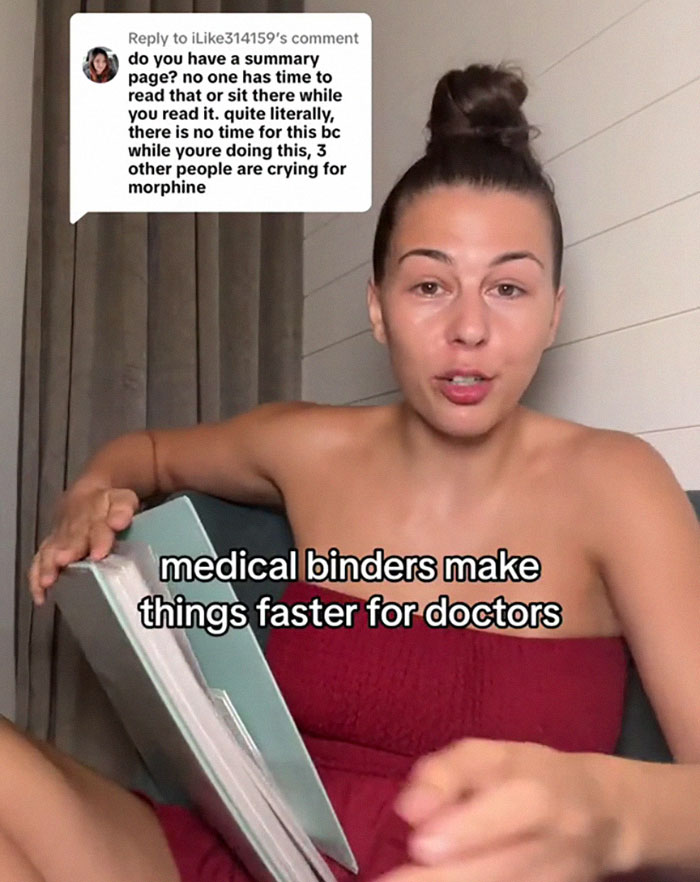
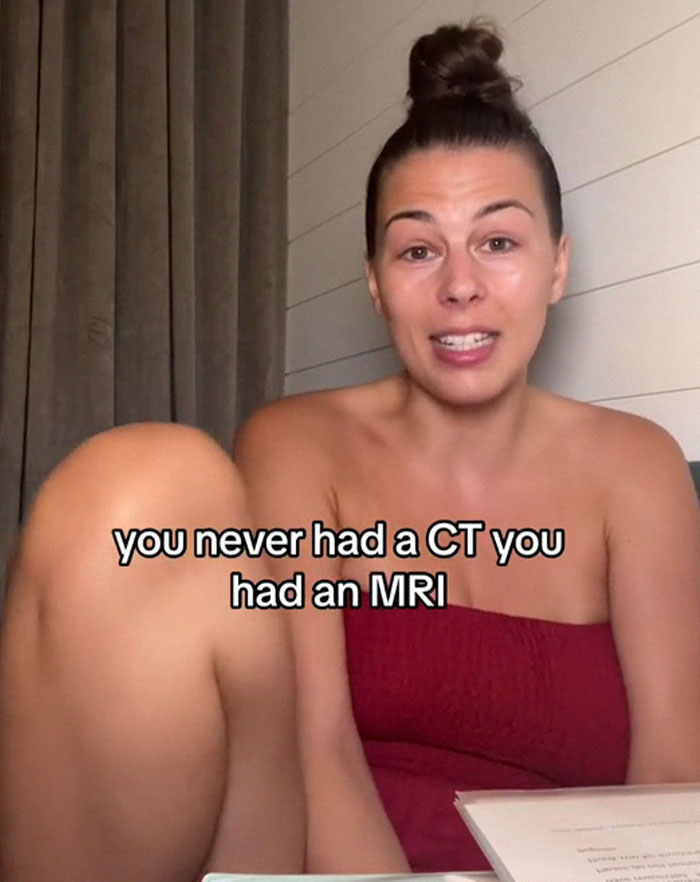


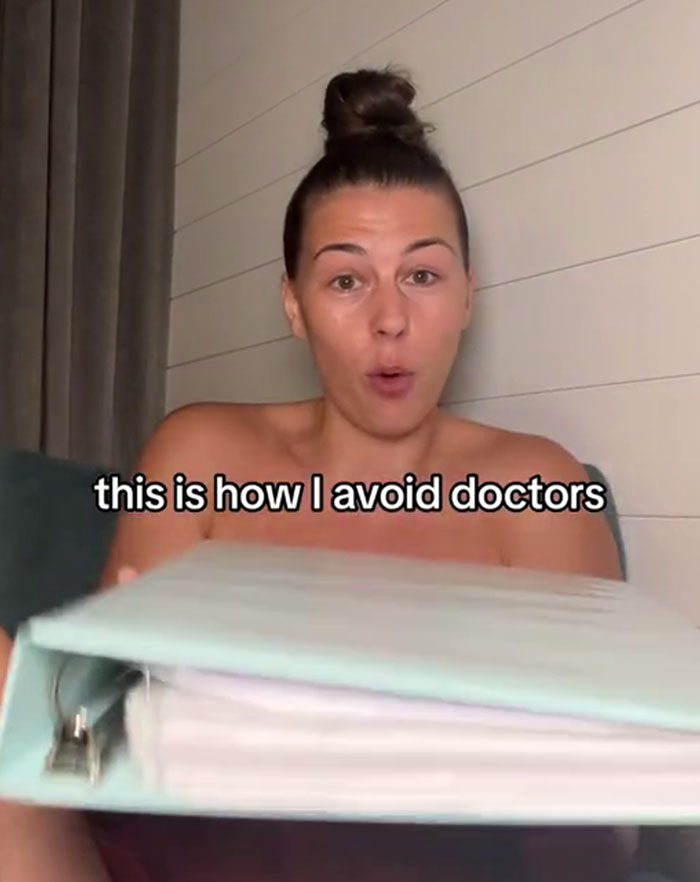
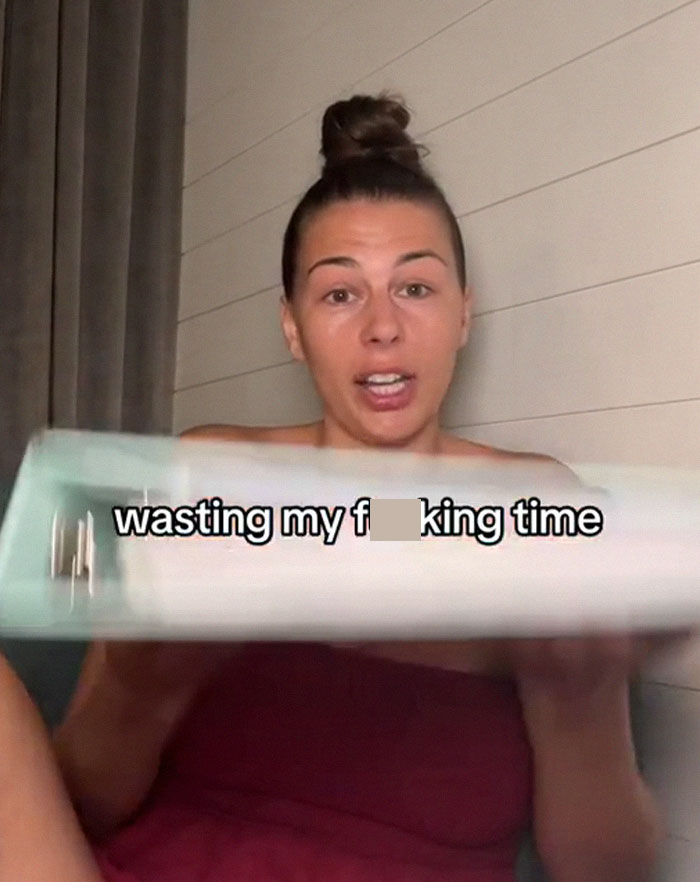

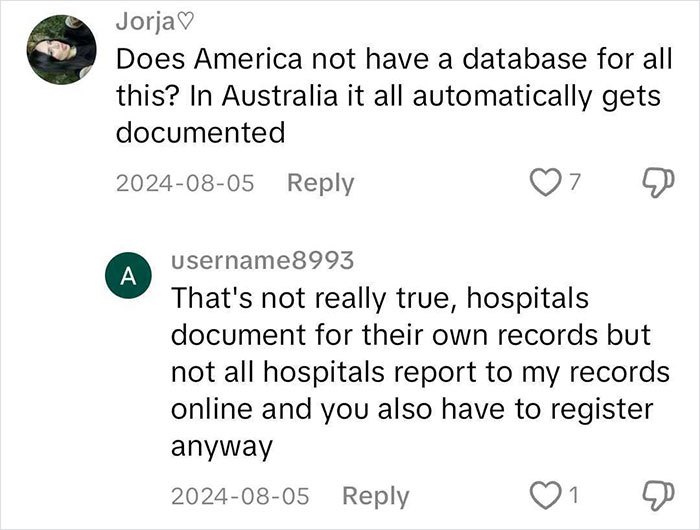
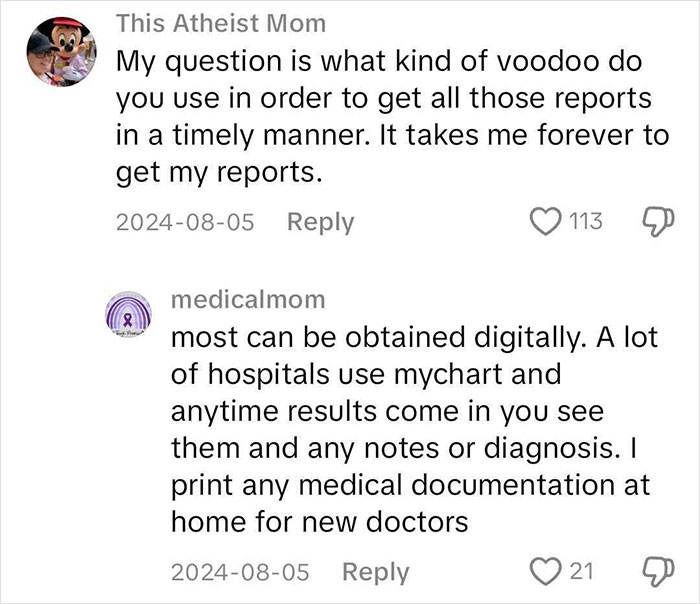
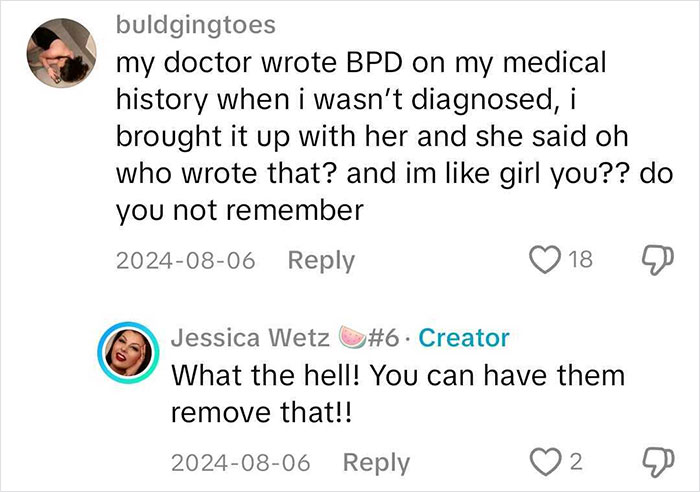




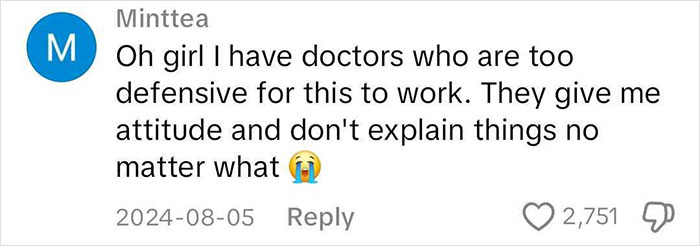
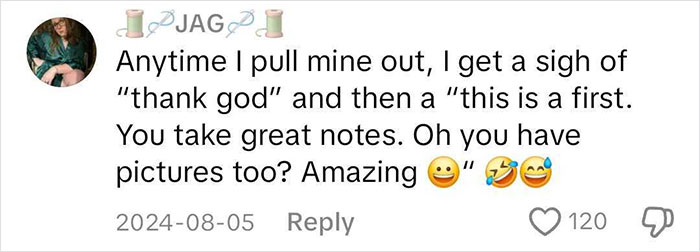
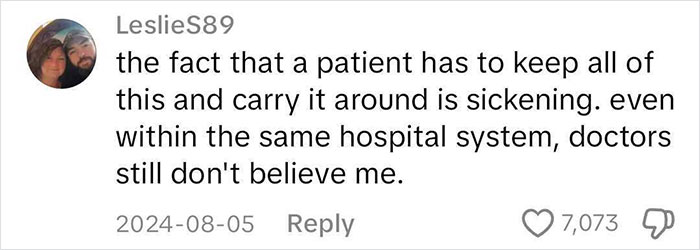
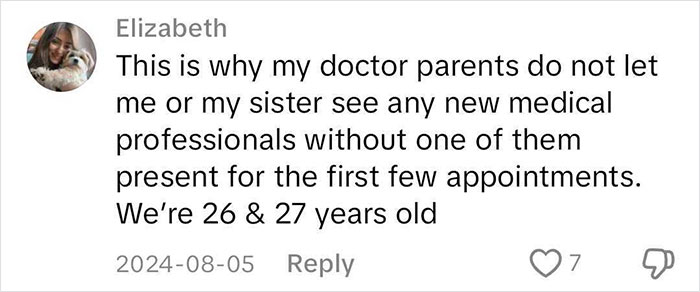
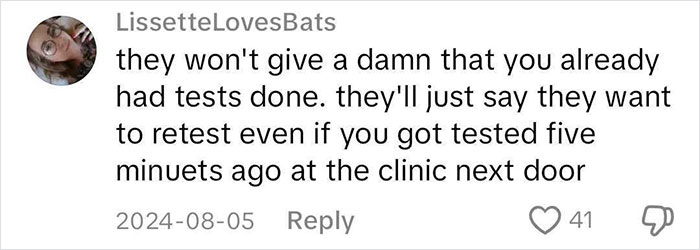
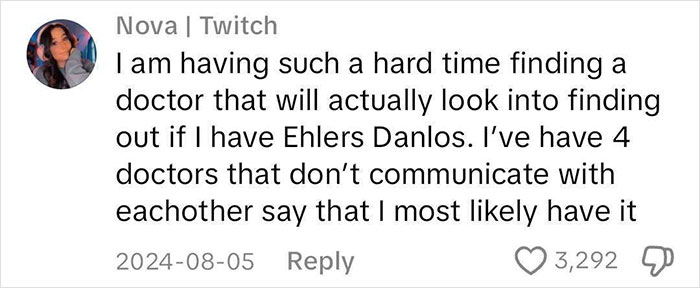
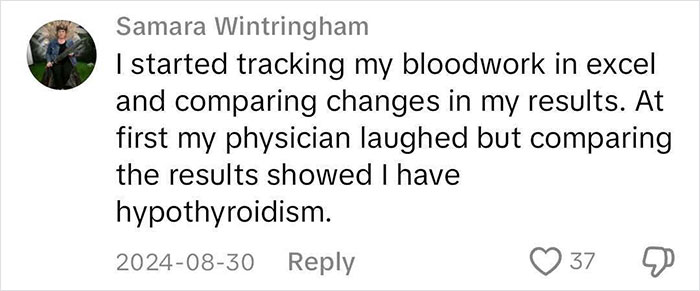
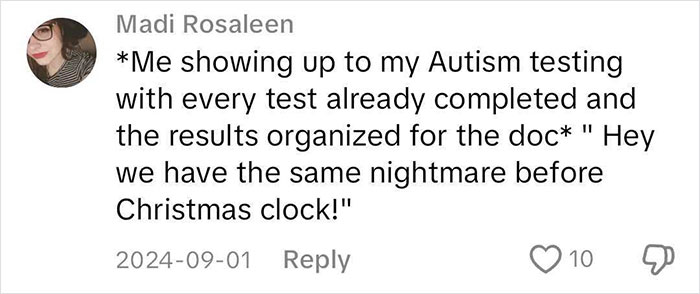

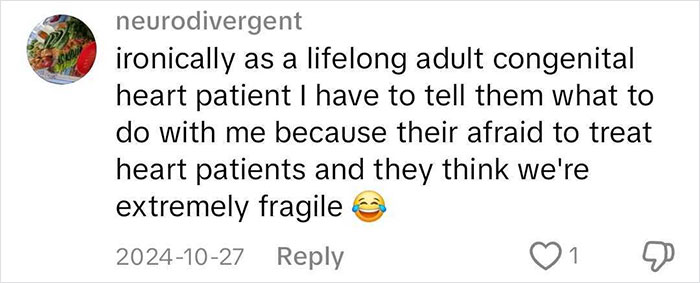
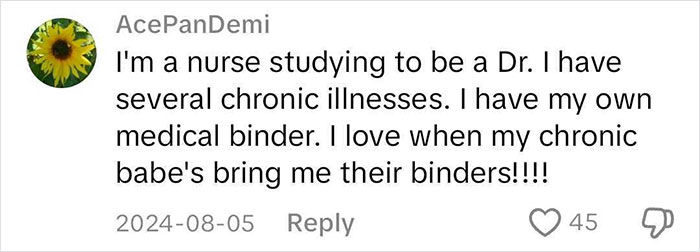












































42
59